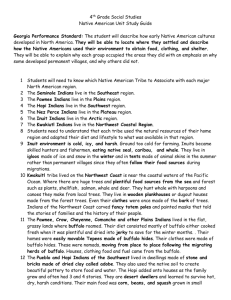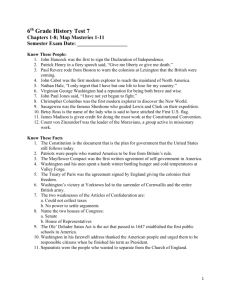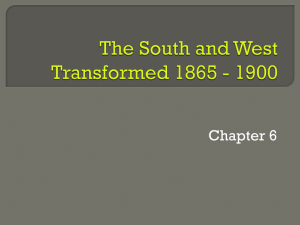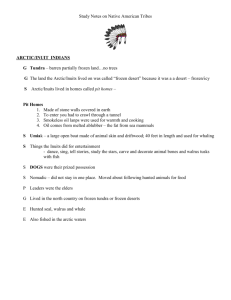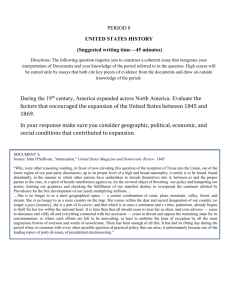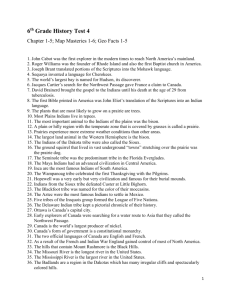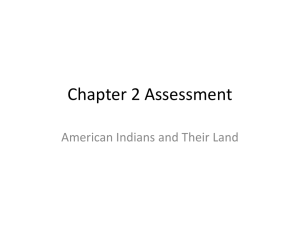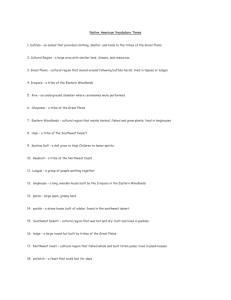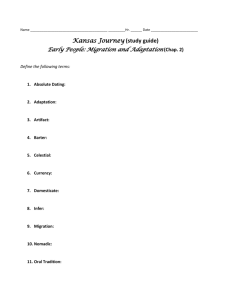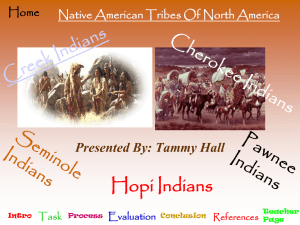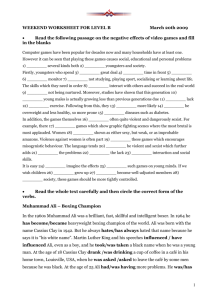Native American Study Guide - Mrs. Abu
advertisement
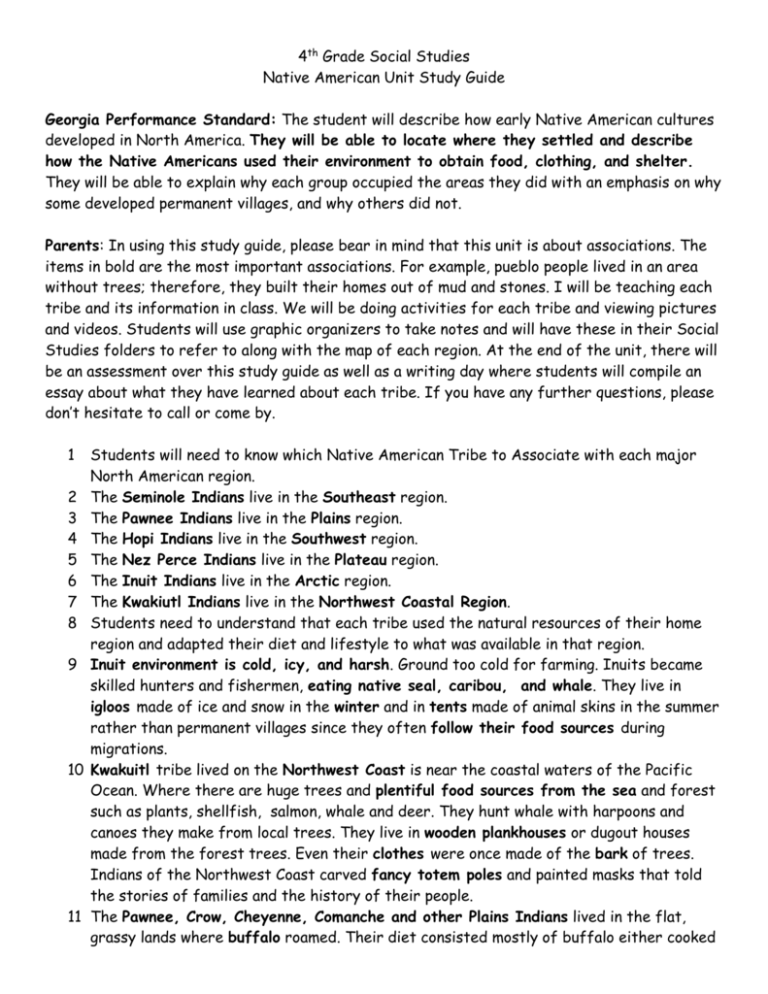
4th Grade Social Studies Native American Unit Study Guide Georgia Performance Standard: The student will describe how early Native American cultures developed in North America. They will be able to locate where they settled and describe how the Native Americans used their environment to obtain food, clothing, and shelter. They will be able to explain why each group occupied the areas they did with an emphasis on why some developed permanent villages, and why others did not. Parents: In using this study guide, please bear in mind that this unit is about associations. The items in bold are the most important associations. For example, pueblo people lived in an area without trees; therefore, they built their homes out of mud and stones. I will be teaching each tribe and its information in class. We will be doing activities for each tribe and viewing pictures and videos. Students will use graphic organizers to take notes and will have these in their Social Studies folders to refer to along with the map of each region. At the end of the unit, there will be an assessment over this study guide as well as a writing day where students will compile an essay about what they have learned about each tribe. If you have any further questions, please don’t hesitate to call or come by. 1 2 3 4 5 6 7 8 9 10 11 Students will need to know which Native American Tribe to Associate with each major North American region. The Seminole Indians live in the Southeast region. The Pawnee Indians live in the Plains region. The Hopi Indians live in the Southwest region. The Nez Perce Indians live in the Plateau region. The Inuit Indians live in the Arctic region. The Kwakiutl Indians live in the Northwest Coastal Region. Students need to understand that each tribe used the natural resources of their home region and adapted their diet and lifestyle to what was available in that region. Inuit environment is cold, icy, and harsh. Ground too cold for farming. Inuits became skilled hunters and fishermen, eating native seal, caribou, and whale. They live in igloos made of ice and snow in the winter and in tents made of animal skins in the summer rather than permanent villages since they often follow their food sources during migrations. Kwakuitl tribe lived on the Northwest Coast is near the coastal waters of the Pacific Ocean. Where there are huge trees and plentiful food sources from the sea and forest such as plants, shellfish, salmon, whale and deer. They hunt whale with harpoons and canoes they make from local trees. They live in wooden plankhouses or dugout houses made from the forest trees. Even their clothes were once made of the bark of trees. Indians of the Northwest Coast carved fancy totem poles and painted masks that told the stories of families and the history of their people. The Pawnee, Crow, Cheyenne, Comanche and other Plains Indians lived in the flat, grassy lands where buffalo roamed. Their diet consisted mostly of buffalo either cooked fresh when it was plentiful and dried into jerky to save for the winter months. . Their homes were easily movable Tepees made of buffalo hides. Their clothes were made of buffalo hides. These were nomads, moving from place to place following the migrating herds of buffalo. Houses, clothing food and fuel came from the buffalo. 12 The Pueblo and Hopi Indians of the Southwest lived in dwellings made of stone and bricks made of dried clay called adobe. They also used the native soil to create beautiful pottery to store food and water. The Hopi added onto houses as the family grew and often had 3 and 4 stories. They are desert dwellers and learned to survive hot, dry, harsh conditions. Their main food was corn, beans, and squash grown in small gardens and supplemented by deer, rabbit, and other small animals they could hunt. They depended on rain and underground springs for water and learned to irrigate the land to grow crops. They learned to save any extra food for times when there was no rain – drought. 13 The Iroquois, Mohawk, and Wampanoags lived in the Northeast Woodlands. They grew crops such as corn, beans, and squash. They hunted and fished as well. They lived in longhouses made of wood and bark. Their clothing was made of deer and other animal skins. 14 The Seminole Indians lived in the Southeast mostly in Florida. Their name means runaway and the tribe was made up of Indians from many Georgia and Florida tribes and escaped slaves. The Florida Everglades is now their home. They are the only tribe that never signed a peace treaty with the United States. They lived in houses called chickees made of wood and mud plaster and covered with thatched palmetto leaves. They were raised off the ground to keep dry and open to let in the breezes. They used flat dugout canoes to get around in the swamp. They were farming people and grew corn, beans, and squash. They also hunted for deer, wild turkey, rabbits, turtles and alligators. They are famous for the colorful cotton skirts and blouses they wear as well as the many strings of beads the women wear around their necks sometimes all the way up to their chins.
